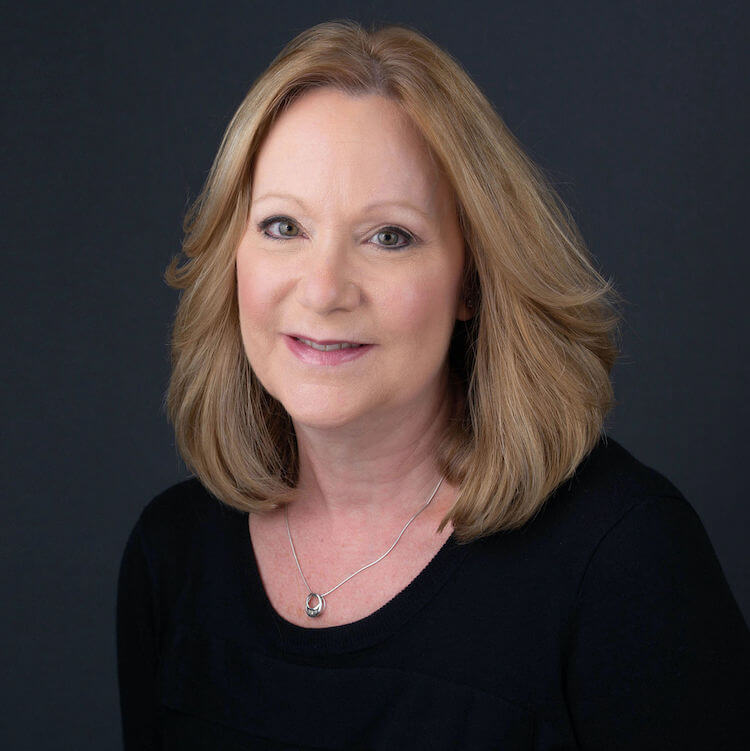Driving Change: How to Steer Your Next Career Move

Mardee Handler is a career coach whose mission is to empower clients to make confident and intentional career decisions. She is certified in the Highlands Ability Battery™ and Personal & Career Vision Coaching method, which serve as the foundation for her coaching engagements. She is also a Certified Career Transitions Coach (CTL).
“Either you run the day, or the day runs you.” – Jim Rohn
Are you actively steering your career path … or just going along for the ride?
If you love your work, earn a nice salary, have the job security you need, and are proud of your professional achievements, it may not matter.
But if any of these isn’t true for you, it could be because you’re letting your career run you rather than the other way around. And that’s worth considering — especially now.
According to a recent Harvard Business Review article, workers of all ages participated in the Great Resignation, leaving their jobs for a wide variety of reasons. But in an unusual shift, mid-career professionals — rather than younger workers, who typically have the highest resignation rate — are leading the pack.
The article cites three probable reasons that more and more mid-career professionals are walking out the door:
- The shift to remote work has impacted hiring trends; many employers are wary of hiring younger, less experienced workers who likely require more supervision, thus creating greater demand for mid-career professionals.
- Many mid-career professionals who had been contemplating a new job or career stayed put due to the economic uncertainties caused by the pandemic. The recent exodus of mid-career professionals could, then, be a result of “pent-up resignations.”
- Everyone has a breaking point, and the pandemic may have led more mid-career professionals to reach it. Increased workloads, increased stress and an increased focus on work-life balance have caused many workers to rethink their career (and life) goals.
If either of the last two reasons sounds familiar, this could be a better time than ever for you to take advantage of the first, especially if you’re a mid-career professional. Being in higher demand gives you a clear advantage; you can afford to be selective about which jobs — or careers — to pursue.
How to Navigate Your Next Career Move
I recently told a client in his late 20s to try paying less attention to what others are advising him and more attention to his inner voice. “You’re past the age where your parents and peers get to cast a vote on your future,” I told him. “It’s your turn to steer the ship. And that can be scary if you’ve never been in the captain’s seat.” This holds true regardless of your age or career stage.
The uncertainty in today’s economy and workforce can be viewed as another challenge. But amazing opportunities often arise from uncertainty, especially if you’re open to them. Whether you’re considering a new job or a career transition, now is the perfect time to make proactive — rather than reactive — decisions about your career. Here are some ways to start:
Develop an increased level of self-awareness.
You are so much more than your past (or current) job titles. What are your natural abilities? What skills have you learned? What really fascinates you? What values do you prioritize?
Imagine introducing yourself … to yourself, emphasizing your qualities and strengths rather than your degree or job title. If you’re like most people, you may never have taken the time to get to know yourself. I mean, really know yourself. As a result, perhaps you’ve taken jobs or accepted promotions simply because they’ve been offered to you.
And while those career moves might have appeared wonderful — who wouldn’t be flattered by a promotion? — they’re only wonderful if they’re right for you.
When there’s a lack of alignment between you and your work — no matter how impressive the job title or salary — you run the risk of becoming bored, frustrated, stressed, overwhelmed or burned out. And so you hop, from one job to the next … until you take the time to develop a level of self-awareness that helps you discern between opportunities that sound appealing versus those that are actually a good fit.
Cultivating self-awareness is a process, not a one-and-done activity. Career assessments like the Highlands Ability Battery™ can provide valuable “data” about yourself, starting with your natural talents and abilities. When you have a deeper understanding of how your brain is “hardwired,” you empower yourself to make career decisions with greater precision and confidence.


One of the most compelling lessons we’ve learned over the past 18+ months is that tomorrow isn’t guaranteed.
MARDEE HANDLER
Ditch the (Self-)Doubt
The fact that you know you’re often your own worst enemy isn’t enough. You have to challenge your beliefs — namely, the ones that are about not-enoughness (not smart enough, not experienced enough, not talented enough … ). “Enough” is arbitrary. What you deem to be not-enough might be just right for your next employer.
It’s human nature to focus on your perceived flaws or failures, but as a self-aware adult, you can shift that focus. (And you’ll need to do so to land the job you want. Would you ever walk into an interview with a list of all the ways you fall short compared to the other candidates?)
Inventorying your talents, skills, and achievements in an ongoing career journal can be a powerful antidote to self-doubt.
Doubt can also stem from false assumptions. Mid-career professionals who contemplate a career transition frequently feel “stuck” in their role, industry, or sector. If you’ve spent the better part of your career in the Public Works department for a mid-size city, you might mistakenly assume that you’re limited to Public Works roles. Chances are, you have far more transferable abilities and skills than you realize.
If you’re over or under a certain age, you might think that it’s an obstacle to landing the perfect job. But aside from positions that require a specific number of years of experience, there’s really no ideal age for any job. Who’s to say that “offering a fresh perspective” is exclusive to any one age group? If you consider your age a liability, it will be. If, however, you consider your age an asset, it will be — for the right employer.
Explore!
Remember dressing up in a superhero costume as a kid? There’s a tremendous amount of freedom that accompanies naivety. Sadly, the older and “wiser” we become, we more we tend to limit our own possibilities.
Granted, it costs money to pay for food, shelter, transportation, utilities, etc. Financial obligations are a reality of being an adult. But your current job or career isn’t necessarily the only way to meet them.
U.S. News & World Report’s 20 Best Jobs You’ve Never Heard Of includes a variety of positions that might be new to you, including “logistician,” “management analyst,” and “information security analyst,” to name a few. Whether you launched your career two or thirty-two years ago, allowing yourself to consider new and different jobs can reveal exciting possibilities.
One of the fastest ways to make a career transition is to change either your role or your industry/sector. Let’s say you’re a talented, experienced grant writer for a large pharmaceutical corporation. Most days, you enjoy your work, but the pandemic has intensified your desire to find a job with greater meaning. Working for a public sector non-profit organization whose mission you support could be a logical pivot.
Considering a career change altogether? Grant writers spend a lot of time conducting research, organizing information, and writing. When you consider all the other occupations that also require those skills, you can tap into that same sense of freedom you felt when you donned the superhero cape.
Don’t Wait, Act Now!
Your career isn’t a Black Friday special. But inaction breeds … inaction. One of the most compelling lessons we’ve learned over the past 18+ months is that tomorrow isn’t guaranteed.
Now could be the perfect time to make a minor career pivot or a major career change. The sooner you take the first small step toward creating a professional path that’s right for you, the sooner you’ll reap the rewards of a satisfying, fulfilling career — and future.
Want new articles before they get published? Subscribe to our Awesome Newsletter.

CAREER ADVICE

GOV TALK




